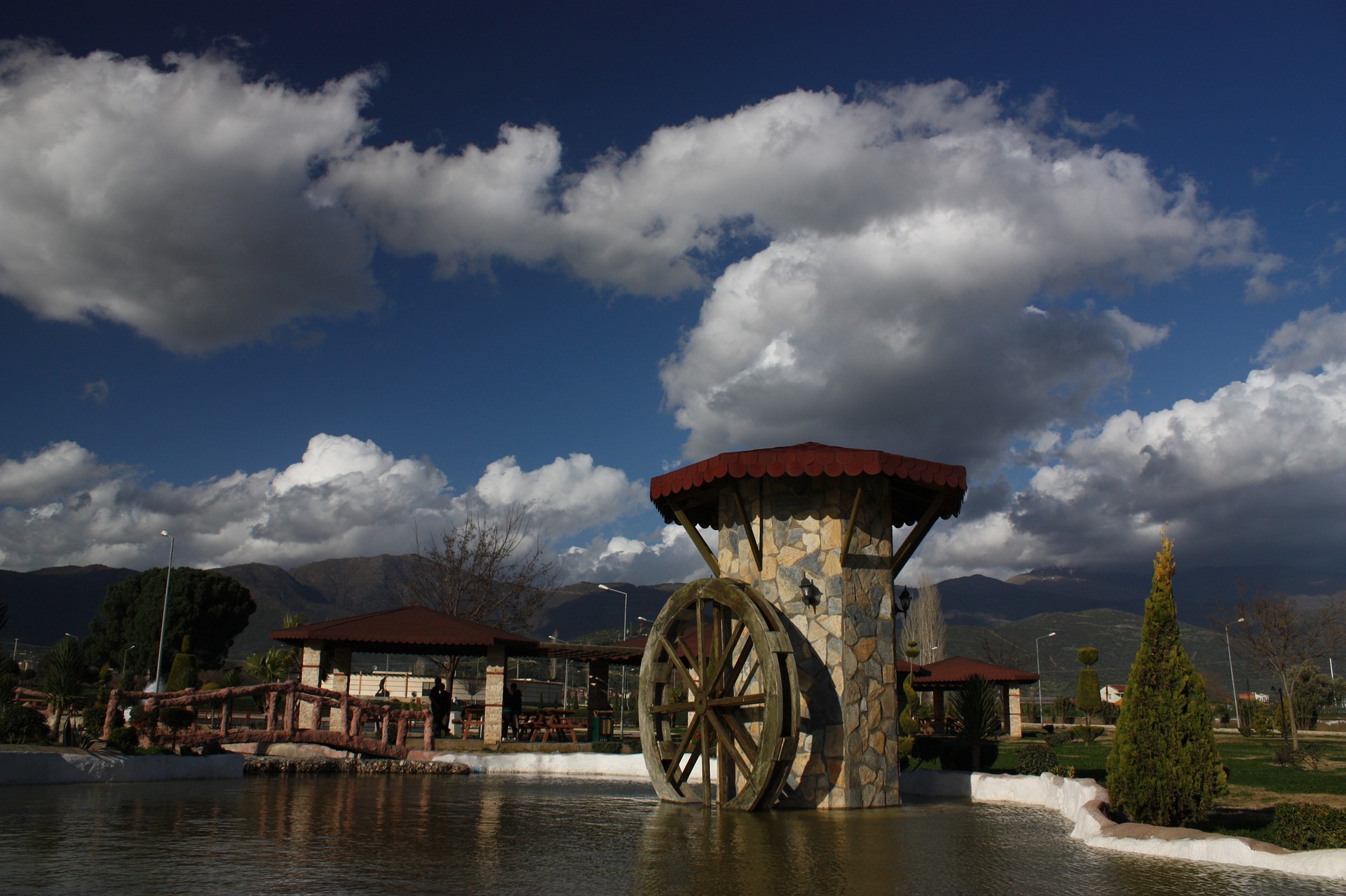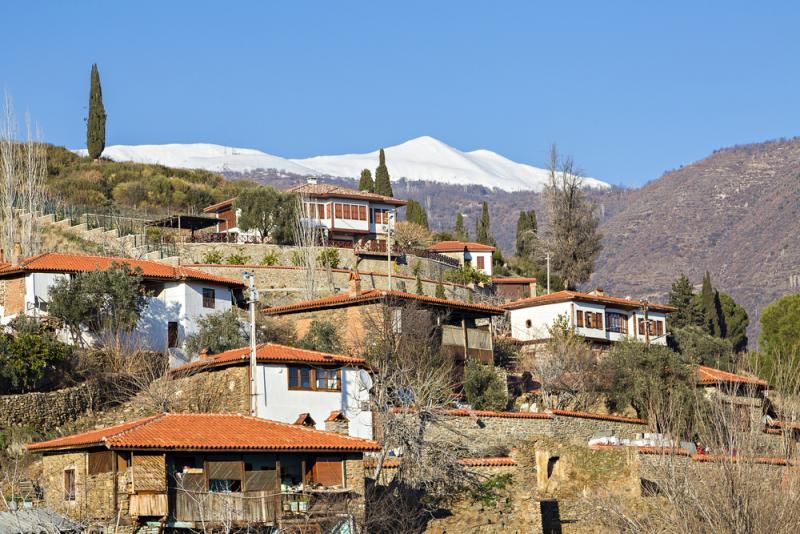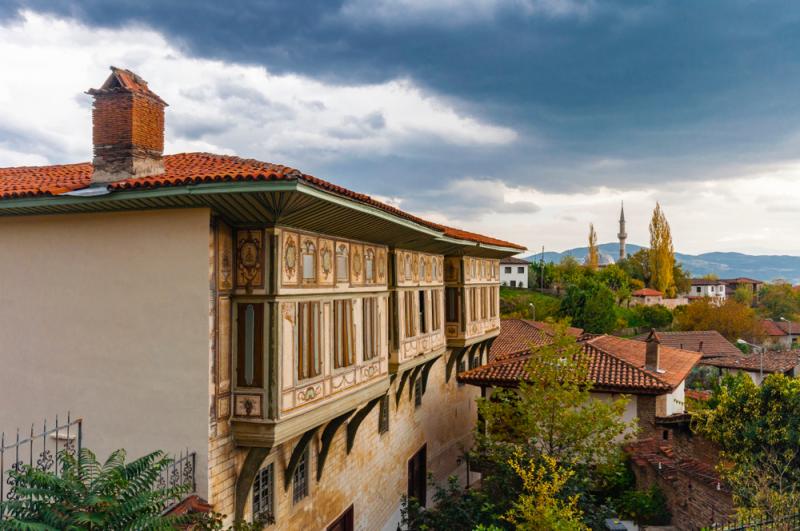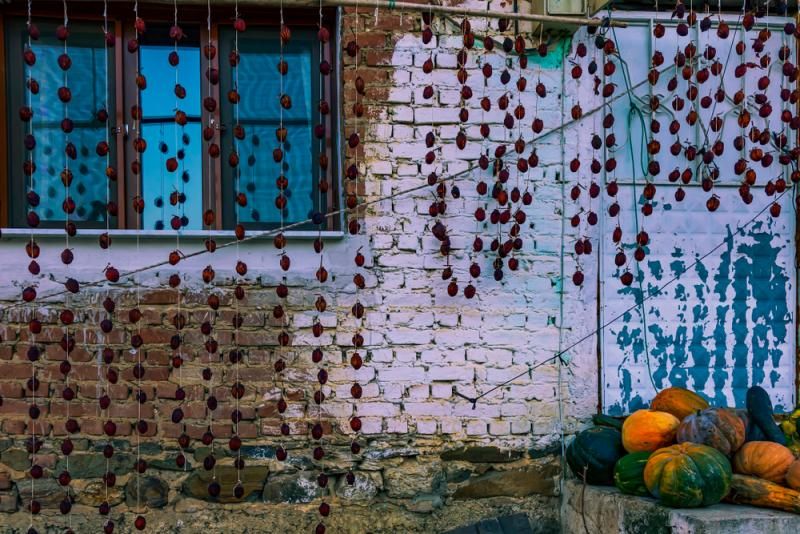Culture & Travel
28 February 2022Güncelleme Tarihi: 3 March 2022
No one can deny that the big cities and most popular tourist attractions of our country are wonderful places with a different history and a different beauty in every corner. But maybe we don't talk enough about their quiet towns, the beauty and history of their quaint villages in their own right. We have made it our duty to tell you about these beautiful villages, and therefore in this article we will tell you about a village just like this: Birgi Village, which will fascinate you not only with its beauty, but also with the different cultures it hosts over time.

Birgi's History
Birgi gets its name when the Greek word "Pyrgion" changes over time. It means Little Tower in Greek. In ancient times, the area was also known as Dios Hieron, the Shrine of Zeus.
This charming village, whose history is estimated to date back to 750 B.C., was home to more than one ancient civilization, as in many corners of Anatolia. Due to its rich water resources and fertile soils; People of ancient civilizations such as Phrygians, Lydians, Persians, Macedonians and Romans lived in the Birgi region before. Afterwards, between 1307 and 1348, Aydınoglu’s were even the capital. It continued to be a cultural center in the 16th and 17th centuries and during the Ottoman Empire.

Birgi, which was placed on the UNESCO World Heritage Provisional List in 2012, owes this valuable title not only to being a cultural center since ancient times, but also to its historical buildings, which it contains and bears architecturally unique examples. "Birgi, home to many different civilizations, offers a multicultural structure with historical buildings and monuments from different periods," he says, adding UNESCO "The region combines traditional home texture dating back to the 18th century with monumental buildings from different periods. It is a very valuable example that has been able to maintain integrity and originality to this day."
Ulucami
For the historical sites mentioned and which we can call the most important structures of Birgi, we can first mention these two: Ulucami and Çakırağa Residence. In addition to its history and architecture, Ulucami is also known for knocking on the wooden pulpit door and smuggling it to Britain in 1993. Then the door is found and brought back to Ulucami, where it belongs, thankfully. The mosque was built in 1312 by Mr. Aydınoğlu Mehmet. Ulucami, which is quite aesthetically pleasing, is definitely a great representative of the simplicity of Selçuk and Ottoman architecture that gives people serenity.
The eastern and southern walls are marble and there is a Byzantine lion in the corner with two walls. While the glazed brick minaret belongs to the first construction process, a walnut ceiling and eight columns are added to the structure. That famous pulpit door is decorated with the “kündekari” technique. Kündekari, a kind of decorative chopping art, consists of cutting geometric pieces of wood in small sizes and passing them together on certain patterns. This art, which is quite common in the Ottoman Empire, also adorned birgen Ulucami.
Upon their deaths, Mr. Mehmet and his sons Gazi Umur and Bahadır were buried in the mosque cemetery.

Çakırağa Residence
Just west of the mosque, we are greeted by our second famous structure: The Çakırağa Residence. The Residence was built between 1761 and 1764 by Tahir Agha of the Çakı family, a wealthy merchant of the period. On the first floor there is a relaxation area, kitchen and barn for guests. Winter rooms on the second floor have fireplaces and bathrooms. The walls surrounding both the first and second floors are adorned with woodwork made with very fine workmanship. Tahir Agha, who has two wives, painted the views from İstanbul and İzmir, the cities of his wives, on the walls of the two rooms of the mansion because they missed their hometown. It is worth remembering that it is forbidden to take photos so that the pictures are not damaged.
Other buildings to visit and see are İmam Birgivi Madrasa, Sultanshah Tomb and Şefik Bey Oilhouse, a campus built for the construction of olive oil.
The Efeler Road
You will be fascinated by the nearly 3,000-year-old history and unique atmosphere of Birgi Village, which has recently been boosted by the increasing tourist interest. Birgi Village expects to attract more local and foreign tourists with The Efeler Road Project. The project, which will draw a 500-kilometer walking route; It is planned to be implemented with the support of Izmir Metropolitan Municipality, Ege University, ForestRy Regional Directorate and Ministry of Culture and Tourism. The project, which will connect the old villages and plateaus of Ephesus, Aydın Mountains and Bozdağ, is expected to be a very important step for regional tourism. We can say that it is a very popular place for television series and motion pictures that are filmed and planned to be made, it is announced to enthusiasts!

Local Bazaar
Every Monday in Birgi, where the local bazaar is established, you will also have the opportunity to see the embroidery adorned with colorful flowers, which the women of the village have finely processed! We say never miss the chance to visit Birgi Village on the İzmir-Bodrum-Marmaris line, which will remain within your Aegean Coast route, and to breathe the immaculate air inhaled by people from many different civilizations. We wish everyone a good journey already!



